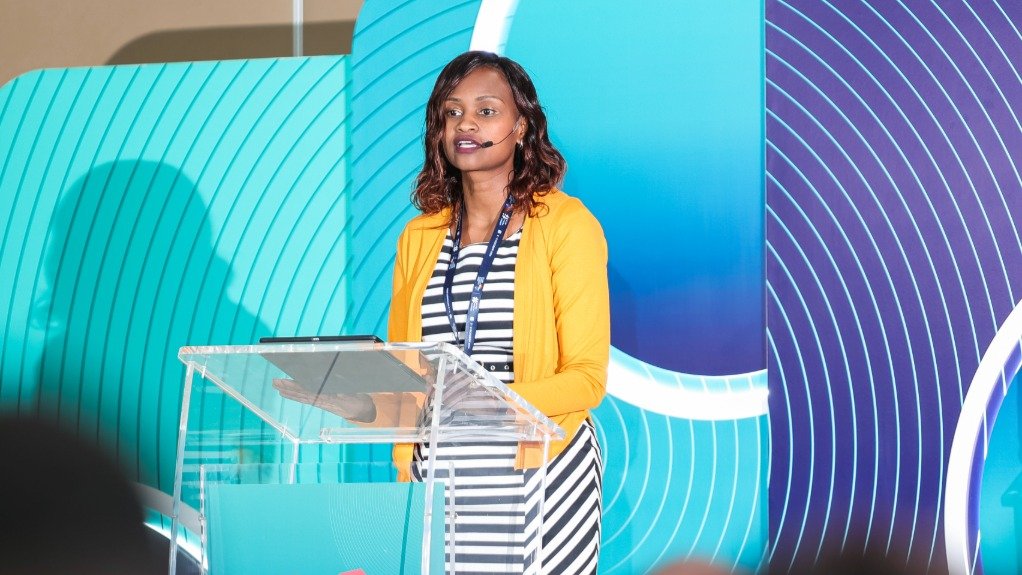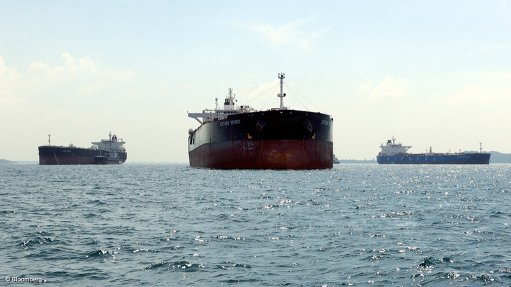B Lab Africa Summit urges businesses to ‘act for good’
Africa’s ability to achieve inclusive economic development amid climate change, fragmented trade and a rapidly growing population will depend on decisive action in agriculture, water, education, technology and data, trade and finance, and entrepreneurship and youth development, B Lab Africa CEO Lucy Mugai has said.
Opening the B Lab Africa Summit on October 2, Mugai urged businesses to be a force for good, warning that the continent risked being disproportionately disadvantaged by global climate and trade disruptions.
Mugai highlighted Africa’s development potential, underpinned by its young demographic and abundant natural resources, noting that by 2030, one-fifth of the world’s working-age population would live in Africa.
The summit’s six focus areas were chosen for their potential to drive sustainability, innovation and leadership across business and society.
Former Statistician-General of South Africa Dr Pali Lehohla, delivering a keynote address, stressed the need for new “instruments of power” to address Africa’s economic vulnerabilities.
Some of sub-Saharan Africa’s most notable disparities include countries’ GDP in relation to their population and price levels, or purchasing power, across countries on the continent and internationally. “Comprehensive economic planning and accountability is needed to address poverty and inequality,” Lehohla said.
Lehohla urged governments to move beyond simplistic planning systems, calling for a comprehensive development matrix. He suggested that Costa Rica’s model – shifting from a resource-based to a knowledge-based economy through investments in value-added sectors and political stability – could be replicated in Africa.
Meanwhile, a panel hosted by B Lab Africa comprising agriculture experts agreed on the importance of reducing non-tariff barriers for small businesses, particularly small-scale farmers, and corporations supporting sustainability efforts in agriculture.
In hospitality group Attitute Hotel’s case, sustainability manager Juliette Deloustal cited the example of the company sourcing agricultural produce from small-scale growers in Mauritius, which guaranteed an offtake or market for their goods, as well as stability of supply for the group.
In turn, Danone Southern Africa corporate affairs head Leanne Kiezer explained how the company was involved with more than 200 000 small-scale farmers across Africa, with the group having a dedicated focus on localisation and aggregation.
Danone provides infrastructure such as milk cooling stations and financial literacy support, as well as incentives for regenerative agriculture practices, to ensure inclusive development of the agriculture sector that supplies dairy for its operations.
Engineering consultancy HMP Engineering Solutions CEO Hilda Forsythe pointed out the unique technology support that small-scale farmers in Africa needed, owing to their remote locations in many cases and lack of resources for high-tech development.
For example, HMP offers solar-powered food dryers for food preservation and reduced waste, with equipment being available for purchase or hire. HMP also has a digital connection platform for farmers, agroprocessors and bulk buyers of produce across Africa.
With many countries in Africa being water-scarce, Forsythe mentioned the importance of offering water collection and storage solutions, including inflatable tanks and permeable paving to help combat water shortages in agriculture and other sectors.
HMP also provides training workshops in the agriculture sector to teach young farmers and entrepreneurs about how to improve business operations.
The experts acknowledged that small-scale farmers often needed financial literacy education, flexible terms for offtake agreements, technical capacity to scale and a combination of public and private sector funds to support sustainability.
They motivated that these support efforts resulted in benefits for companies in terms of environmental, social and governance credentials, as well as economically empowered supply chains and markets, with support efforts often having ripple-effects in communities.
Article Enquiry
Email Article
Save Article
Feedback
To advertise email advertising@creamermedia.co.za or click here
Press Office
Announcements
What's On
Subscribe to improve your user experience...
Option 1 (equivalent of R125 a month):
Receive a weekly copy of Creamer Media's Engineering News & Mining Weekly magazine
(print copy for those in South Africa and e-magazine for those outside of South Africa)
Receive daily email newsletters
Access to full search results
Access archive of magazine back copies
Access to Projects in Progress
Access to ONE Research Report of your choice in PDF format
Option 2 (equivalent of R375 a month):
All benefits from Option 1
PLUS
Access to Creamer Media's Research Channel Africa for ALL Research Reports, in PDF format, on various industrial and mining sectors
including Electricity; Water; Energy Transition; Hydrogen; Roads, Rail and Ports; Coal; Gold; Platinum; Battery Metals; etc.
Already a subscriber?
Forgotten your password?
Receive weekly copy of Creamer Media's Engineering News & Mining Weekly magazine (print copy for those in South Africa and e-magazine for those outside of South Africa)
➕
Recieve daily email newsletters
➕
Access to full search results
➕
Access archive of magazine back copies
➕
Access to Projects in Progress
➕
Access to ONE Research Report of your choice in PDF format
RESEARCH CHANNEL AFRICA
R4500 (equivalent of R375 a month)
SUBSCRIBEAll benefits from Option 1
➕
Access to Creamer Media's Research Channel Africa for ALL Research Reports on various industrial and mining sectors, in PDF format, including on:
Electricity
➕
Water
➕
Energy Transition
➕
Hydrogen
➕
Roads, Rail and Ports
➕
Coal
➕
Gold
➕
Platinum
➕
Battery Metals
➕
etc.
Receive all benefits from Option 1 or Option 2 delivered to numerous people at your company
➕
Multiple User names and Passwords for simultaneous log-ins
➕
Intranet integration access to all in your organisation




















